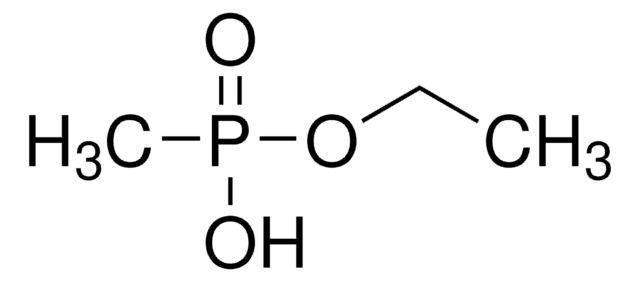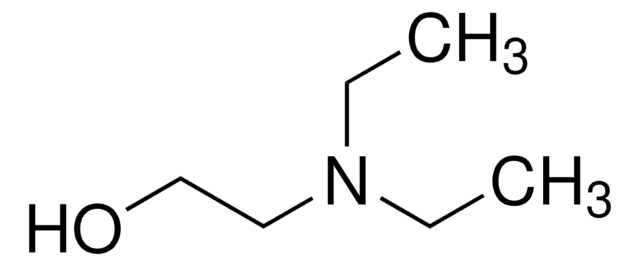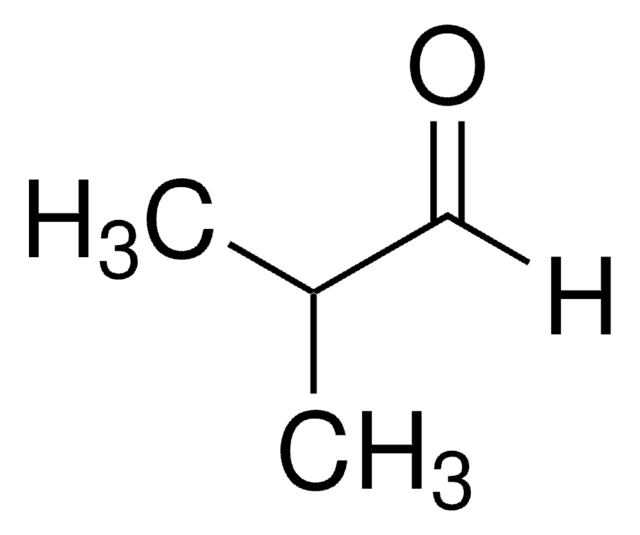386588
Pinacolyl methylphosphonate
97%
Synonym(s):
1,2,2-Trimethylpropyl methylphosphonate, 3,3-Dimethylbutan-2-yloxy(methyl)phosphinic acid, Mono(1,2,2-trimethylpropyl) methylphosphonate, O-Pinacolyl hydrogen methylphosphonate, O-Pinacolyl methylphosphonate, PMPA, Pinacolyl hydrogen methylphosphonate, [(3,3-Dimethylbutan-2-yl)oxy](methyl)phosphinic acid
About This Item
Recommended Products
Quality Level
Assay
97%
form
liquid
refractive index
n20/D 1.434 (lit.)
bp
96-106 °C/8 mmHg (lit.)
density
1.032 g/mL at 25 °C (lit.)
SMILES string
CC(OP(C)(O)=O)C(C)(C)C
InChI
1S/C7H17O3P/c1-6(7(2,3)4)10-11(5,8)9/h6H,1-5H3,(H,8,9)
InChI key
BLALDUPQYCGKAG-UHFFFAOYSA-N
Looking for similar products? Visit Product Comparison Guide
Signal Word
Warning
Hazard Statements
Precautionary Statements
Hazard Classifications
Acute Tox. 4 Oral - Skin Irrit. 2
Storage Class Code
10 - Combustible liquids
WGK
WGK 2
Flash Point(F)
165.2 °F - closed cup
Flash Point(C)
74 °C - closed cup
Choose from one of the most recent versions:
Certificates of Analysis (COA)
Don't see the Right Version?
If you require a particular version, you can look up a specific certificate by the Lot or Batch number.
Already Own This Product?
Find documentation for the products that you have recently purchased in the Document Library.
Customers Also Viewed
Our team of scientists has experience in all areas of research including Life Science, Material Science, Chemical Synthesis, Chromatography, Analytical and many others.
Contact Technical Service








